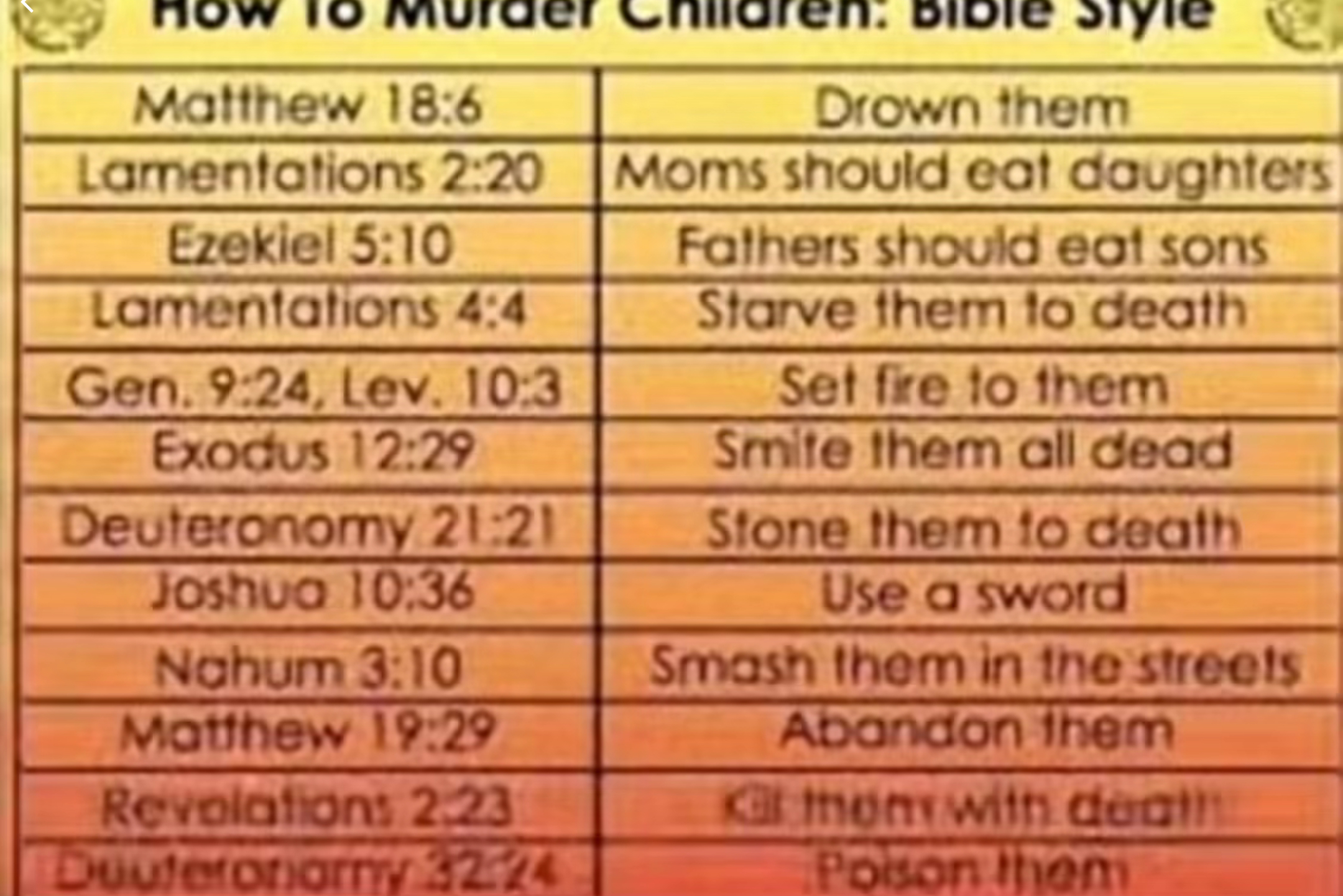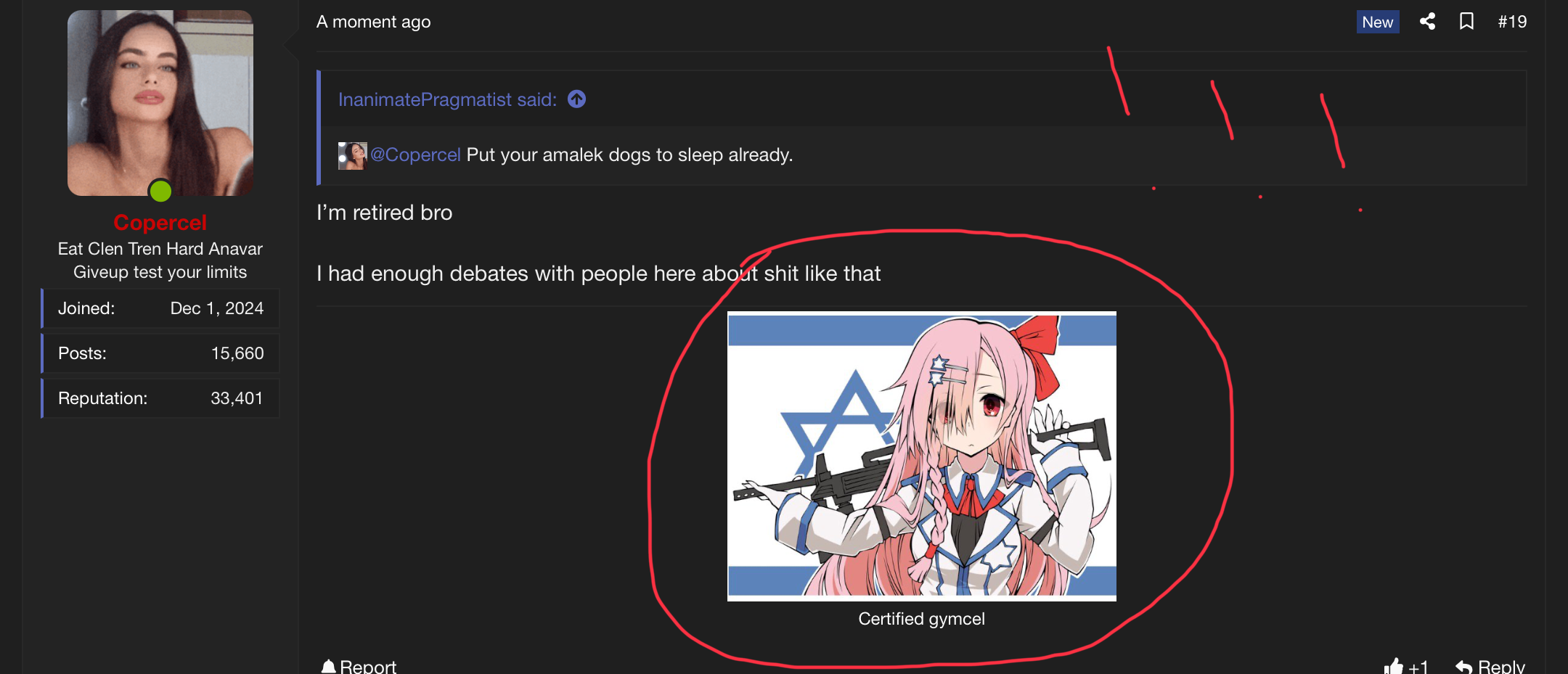Ghoulish
Your gfs personal dildo
- Joined
- Jul 29, 2024
- Posts
- 11,288
- Reputation
- 19,561
I keep seeing it all the time here, and I don’t know how this hasn’t been debunked on this forum yet given how comically broken it is. You guys need to stop getting information off of muslim apologetics on YouTube as no respectable non-schizo traditionalist scholar upholds this narrative (if they even bothered to research it) given it’s MANY great flaws. This will be a wall of text, but read the entire thing if you are misinformed. It’s better to not be ignorant in the face of all this hate, you would want the same to be done to you if you were being falsely accused.
firstly, it’s a Hadith not a quranic verse, Hadith were originally circulated via oral transmission for 200 years. The hadith is narrated by Hisham ibn ‘Urwah, from his father, from Aisha. The chain for the hadith is graded hasan, which is somewhat reliable. Not concrete. But this isn’t the point of mine.
the guy who narrated it, Hisham ibn urwa, narrated this verse when he was 71 in Iraq. Around the same time, he was also diagnosed with memory problems, and he was said to have NEVER narrated this verse prior to this. None of his past students ever mentioned this verse. But this isn’t the point either, this just shows that the verse is volatile. It’s extremely suspicious.
Here is the verse
”that the Prophet (ﷺ) married her when she was six years old and he consummated his marriage when she was nine years old.”
this brings the largest problem with this verse. The idea of 6 years old being sufficient for marriage is completely against quranic teachings of the age of consent, which highlights that mental maturity (described as being able to handle ownership of property and rational thought) , physical maturity (post pubescent) and clear consent Is extremely important and the baseline.
so, according to the Quran, the marriage is completely impermissible since Aisha would be a child at 6. Definitely not mature, mentally or physically. And according to ALL scholars, quranic text is taken over ANY other scripture.
Ibn Qayyim al-Jawziyya (d. 751 AH), a renowned Hanbali scholar, wrote in I'lam al-Muwaqqi'in:
"The Sunnah does not contradict the sound, clear Quran. If a hadith is found to be in contradiction, then efforts must be made to reconcile them. If reconciliation is impossible, then the Quran is given precedence, and the hadith is rejected... for the Quran is the foundation, and the Sunnah is the building."
this is only the first problem with this Hadith. The second problem is that it goes against many historical accounts of the events that took place in Islamic history, which are deemed much more reliable than a Hadith graded Hasan. For example, Aisha is said to have taken an active role in the battles of Uhud and the battle of badr. The battle of badr took place before her marriage was consummated, putting her age during the battle as 8-8 years old. And her age at uhud at 10.
now this bring a problem, how the hell would a literal child (who must have been deemed an adult to even take part in these battles as children were not allowed) be able to actively drag wounded soldiers off battlefields? Never seen a 9 year old able to pull a 70kg man across an entire battlefield hundreds of times over (the battle was a route, the location to treat them was constantly changing, meaning she would have had to help carry them.) This is why many scholars and historians heavily doubt the authenticity of this hadith.
Then, you have the problem of her prior engagement. Aisha was due to be married to another man (Mutʿim ibn ʿAdiyy) before muhammad (peace be upon him) however, this would have put her age at 3 YEARS OLD when she was engaged. This brings ANOTHER problem as child marriages were completely outlawed in post Islamic Arabia, and the man would have been punished for this. However, he is described as an honourable man (there are many details on his life.)
Now here’s the fourth major issue with this Hadith. It goes against other accounts aswell. Aishas sister, asma is narrated to have been 27 during aishas marriage, and Aisha to be 10 years younger putting aishas age at a more reliable, islamically, historically, rationally and culturally, at 17 years old. The account of asmas age is more reliable than the Hadith aswell, given it is a well recorded historical fact, rather than something narrated by some old guy with Alzheimer’s. The age hadith is a solitary report (khabar al-wahid) with a specific criticism of its narrator. The evidence from Asma's age and the battles is based on well-established history (almost mutawatir in historical terms). In Islamic jurisprudence, stronger evidence outweighs weaker evidence.
so, in conclusion, due to the Hadith being not only completely useless to most Muslims while it was circulating orally for centuries as it has no religious value (why would bedouin arabs care about how old some girl was) making it prone to errors in transmission, it is also completely against the quranic teachings, against many historical evidences, and against logic itself. It is also narrated by an old man with memory issues.
and if anyone is to bring the verse about Aisha playing with dolls, there are also MANY refutations for that Hadith too. Firstly, Aisha was a scholar by the time that Hadith was said to have taken place. A woman like Aisha playing with dolls, then going out to debate idol worshippers about religion and save lives in extremely devastating battles?
secondly, the verse describes her playing with ”dolls” which is also problematic, since dolls fall under idols, which are completely forbidden in households and Aisha would NOT been allowed to play with dolls. The prophet wouldn’t have made exceptions, as this would be hypocritical and would have been brought up. Along with these two points, the word “dolls” in Arabic (لَعِبٌ - La'ib**)** can also mean mean "playthings" or "amusement." It may not refer to literal child's dolls but perhaps to decorative figurines or cherished keepsakes, which adult woman did own as a symbol of wealth In pre-Islamic Arabia. Such objects were common.
never believe everything you see online, always check it With a reliable source.
firstly, it’s a Hadith not a quranic verse, Hadith were originally circulated via oral transmission for 200 years. The hadith is narrated by Hisham ibn ‘Urwah, from his father, from Aisha. The chain for the hadith is graded hasan, which is somewhat reliable. Not concrete. But this isn’t the point of mine.
the guy who narrated it, Hisham ibn urwa, narrated this verse when he was 71 in Iraq. Around the same time, he was also diagnosed with memory problems, and he was said to have NEVER narrated this verse prior to this. None of his past students ever mentioned this verse. But this isn’t the point either, this just shows that the verse is volatile. It’s extremely suspicious.
Here is the verse
”that the Prophet (ﷺ) married her when she was six years old and he consummated his marriage when she was nine years old.”
this brings the largest problem with this verse. The idea of 6 years old being sufficient for marriage is completely against quranic teachings of the age of consent, which highlights that mental maturity (described as being able to handle ownership of property and rational thought) , physical maturity (post pubescent) and clear consent Is extremely important and the baseline.
so, according to the Quran, the marriage is completely impermissible since Aisha would be a child at 6. Definitely not mature, mentally or physically. And according to ALL scholars, quranic text is taken over ANY other scripture.
Ibn Qayyim al-Jawziyya (d. 751 AH), a renowned Hanbali scholar, wrote in I'lam al-Muwaqqi'in:
"The Sunnah does not contradict the sound, clear Quran. If a hadith is found to be in contradiction, then efforts must be made to reconcile them. If reconciliation is impossible, then the Quran is given precedence, and the hadith is rejected... for the Quran is the foundation, and the Sunnah is the building."
this is only the first problem with this Hadith. The second problem is that it goes against many historical accounts of the events that took place in Islamic history, which are deemed much more reliable than a Hadith graded Hasan. For example, Aisha is said to have taken an active role in the battles of Uhud and the battle of badr. The battle of badr took place before her marriage was consummated, putting her age during the battle as 8-8 years old. And her age at uhud at 10.
now this bring a problem, how the hell would a literal child (who must have been deemed an adult to even take part in these battles as children were not allowed) be able to actively drag wounded soldiers off battlefields? Never seen a 9 year old able to pull a 70kg man across an entire battlefield hundreds of times over (the battle was a route, the location to treat them was constantly changing, meaning she would have had to help carry them.) This is why many scholars and historians heavily doubt the authenticity of this hadith.
Then, you have the problem of her prior engagement. Aisha was due to be married to another man (Mutʿim ibn ʿAdiyy) before muhammad (peace be upon him) however, this would have put her age at 3 YEARS OLD when she was engaged. This brings ANOTHER problem as child marriages were completely outlawed in post Islamic Arabia, and the man would have been punished for this. However, he is described as an honourable man (there are many details on his life.)
Now here’s the fourth major issue with this Hadith. It goes against other accounts aswell. Aishas sister, asma is narrated to have been 27 during aishas marriage, and Aisha to be 10 years younger putting aishas age at a more reliable, islamically, historically, rationally and culturally, at 17 years old. The account of asmas age is more reliable than the Hadith aswell, given it is a well recorded historical fact, rather than something narrated by some old guy with Alzheimer’s. The age hadith is a solitary report (khabar al-wahid) with a specific criticism of its narrator. The evidence from Asma's age and the battles is based on well-established history (almost mutawatir in historical terms). In Islamic jurisprudence, stronger evidence outweighs weaker evidence.
so, in conclusion, due to the Hadith being not only completely useless to most Muslims while it was circulating orally for centuries as it has no religious value (why would bedouin arabs care about how old some girl was) making it prone to errors in transmission, it is also completely against the quranic teachings, against many historical evidences, and against logic itself. It is also narrated by an old man with memory issues.
and if anyone is to bring the verse about Aisha playing with dolls, there are also MANY refutations for that Hadith too. Firstly, Aisha was a scholar by the time that Hadith was said to have taken place. A woman like Aisha playing with dolls, then going out to debate idol worshippers about religion and save lives in extremely devastating battles?
secondly, the verse describes her playing with ”dolls” which is also problematic, since dolls fall under idols, which are completely forbidden in households and Aisha would NOT been allowed to play with dolls. The prophet wouldn’t have made exceptions, as this would be hypocritical and would have been brought up. Along with these two points, the word “dolls” in Arabic (لَعِبٌ - La'ib**)** can also mean mean "playthings" or "amusement." It may not refer to literal child's dolls but perhaps to decorative figurines or cherished keepsakes, which adult woman did own as a symbol of wealth In pre-Islamic Arabia. Such objects were common.
never believe everything you see online, always check it With a reliable source.
@Gengar @Old Büll @KeepCopingLads @Hide @SecularIslamist @pashtunnigga1 @Ralix @SyrianPsycho @afghanincel









